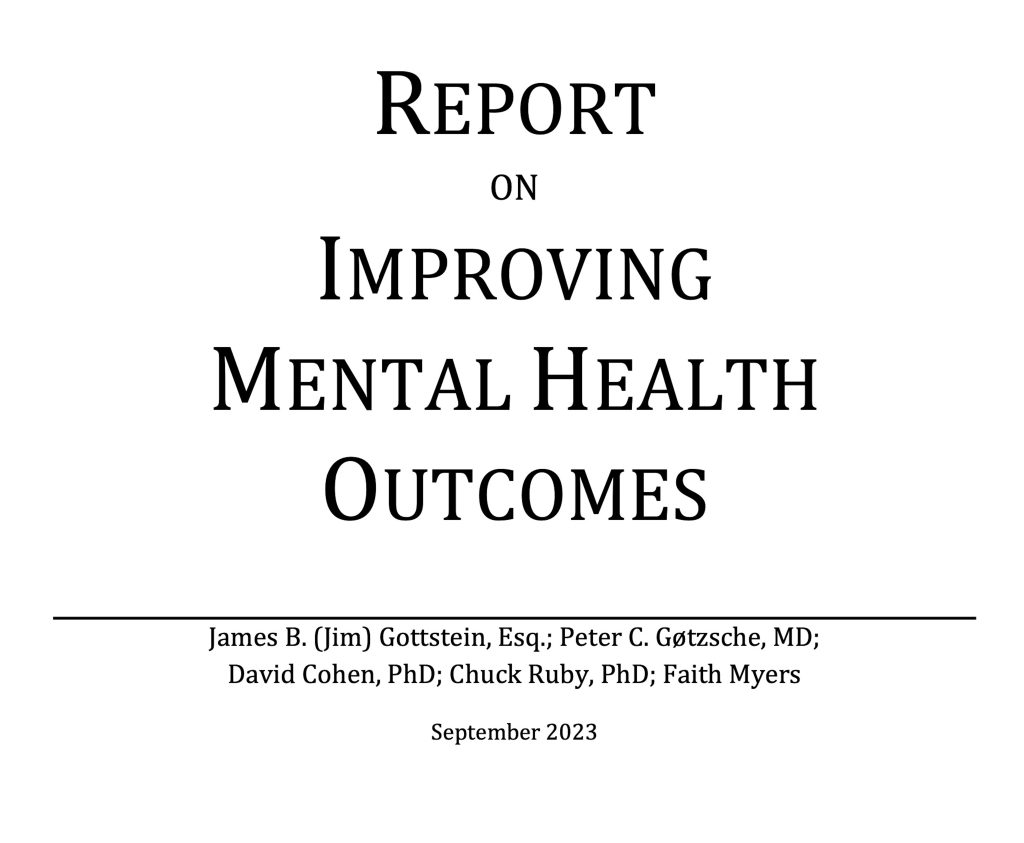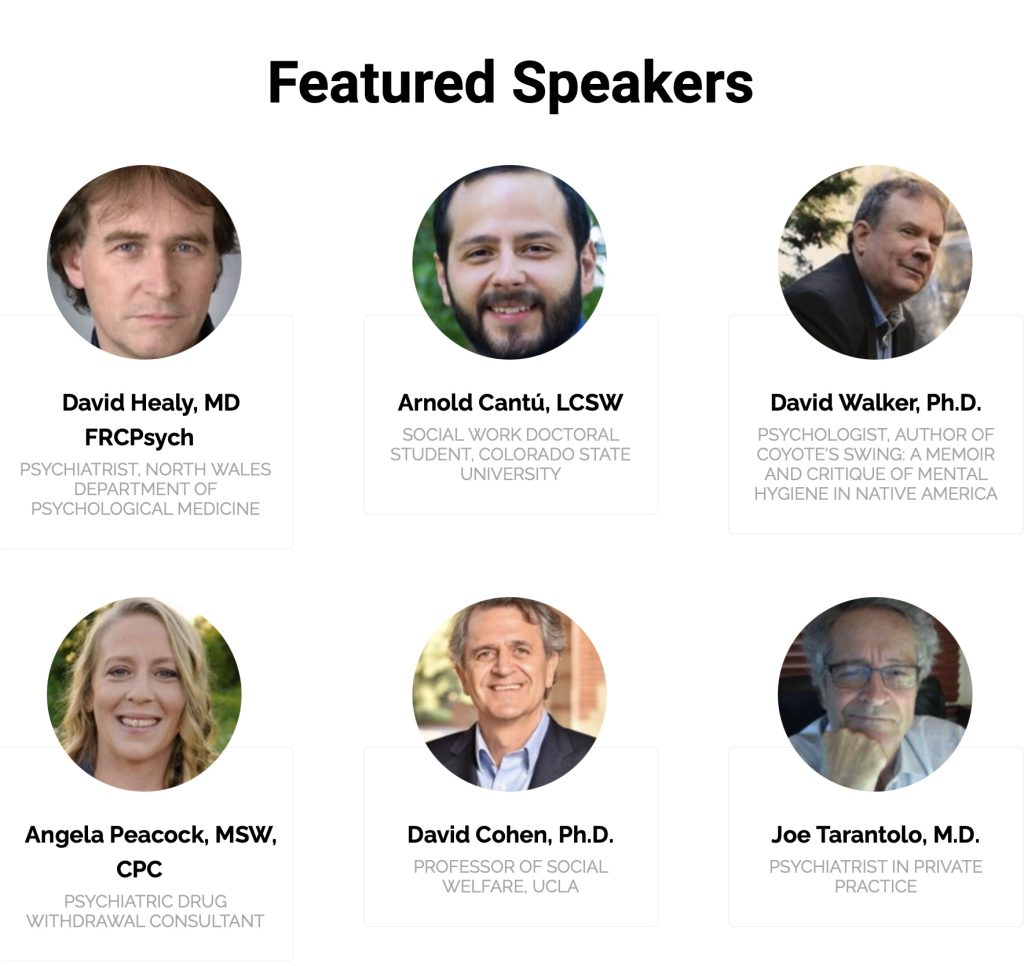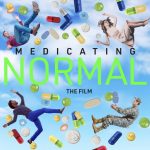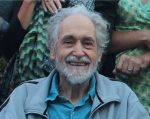ISEPP’s 25th Annual Conference – Afterword
ISEPP’s 25th Annual Conference – Afterword
by Chuck Ruby, PhD, ISEPP Executive Director
With another year's conference come and gone, my thoughts about it, and ISEPP in general, have swirled about me like the wake of a familiar and powerful ship passing by. I thought I'd pen these swirling thoughts, just to help me capture them more clearly for myself but also for the benefit of others. I would be grateful to hear your thoughts too.
ISEPP was created many years ago with the primary purpose of offering a haven to those of us who disagree with and rebel against the orthodoxy of the bio-medical-pathology model of human suffering and all the harmful consequences of such a model. We are professionals who recognize non-medical, safe, and respectful ways to help people in the throes of despair and confusion. We are also the consuming public who seek help, merely demanding that we be treated with basic dignity and not viewed as defective annoyances to be silenced or taken away and secluded out of sight.
This was the 25th time we've convened for camaraderie, expression, and reassurance that each of us is not alone in our difficult struggle with mainstream psychiatry and the clinical versions of psychology, social work, counseling, and yes, even sometimes coaching. Each time, we hear from phenomenal speakers, telling us about the continuing harm of the orthodox model. Each time, we hear how baseless that model is - how the emperor wears no clothes. Each time, we hear about how this model is an ideology, not a science. Each time, we hear about alternative ways to help our fellow humans who face, as we all do, the inevitable challenges of living a human life. Each time we hear the message that human suffering is not a sickness, abnormality, defect, deficiency, or dysfunction. It is an expression of meaningful living.
During this most recent conference, we once again shared our criticisms of this failed, yet still entrenched, model:
David Healy, MD, FRCPsych, addressed the so-called gold-standard randomized controlled trials (RCTs) as a problem in plain sight, suggesting that their results are scientifically illiterate. They tell us something about the average effects of a treatment and this may be useful for regulators called on to license a drug. But no person seeking our help is average.
Arnold Cantú, LCSW, presented his comprehensive critique of the DSM and his ideas about a replacement framework, borrowing from the field of social work, and accompanied by examples of how the field can move away from the biomedical model. He proposed the development of an alternative non-medicalized, psychosocial, and codified descriptive problem-based taxonomy as an alternative.
David Walker, PhD, shared some of the ways Native Americans continue to survive and thrive in the face of innumerable adversities and oppression. He presented the “Twelve Virtues of Níix Ttáwaxt” (neek TAUwaukT, "good growth to maturity") as a means of support for the wellbeing of Native American youth as well as for all people regardless of background.
Lynn Cunningham introduced the film Medicating Normal. After viewing it, three of the "stars" of the film, David Cohen, PhD, Mary Neal Vieten, PhD, ABPP, and Angie Peacock, MSW, CPC, discussed their experiences making the film and their views on the present-day system's continued reliance on chemical means as the first line of offense to subdue normal emotional distress.
Angie Peacock, MSW, CPC, later presented her experiences as a patient in this system, eventually abandoning it, along with its psychiatric drugs. She described the challenges of doing so, including self-doubt and judgments from others. She encourages people who choose to follow in her footsteps, to redefine their relationships with the “experts” and re-conceptualize their life experiences that have been labeled "symptoms."
The conference culminated with a captivating discussion between Joe Tarantolo, MD and David Cohen, PhD, a long-time psychiatrist and long-time social work academic, respectively. They tried to delineate how, in the current era of "evidence-based psychotherapy" and "behavioral health," the two disciplines approach a variety of topics related to diagnoses, psychotherapy, and the very nature of human suffering.
Yet, despite the value of these conference presentations, as well as our long history of other powerful and uplifting experiences during our annual gathering, the orthodoxy is still firmly in place, calling the shots about people's rights to self-determination. Under the guise of healthcare, that orthodoxy dictates morally-derived standards of appropriate ways to act, feel, and think. Moreover, when we step outside the boundaries of those vague moral norms, we are at risk of losing our very essence of self and freedom by being subjected to long-term and coercive chemical (and less so, electrical and surgical) abuses, and involuntary confinement away from the very support systems so vital for restoration. Both of these reactions by the orthodoxy do nothing but exacerbate the problem by forcing further escape from the realities in our worlds - seeing escape as the answer, rather than engagement with our worlds despite the pain. Escaping merely serves to further distance us from possible solutions that would eventually reap a sense of meaning and contentment.
What are we to do? We have run the gamut from Congressional contact, peer-reviewed research and writings, consumer-driven demands for rights, one-on-one contact with other professionals and potential consumers, and both mainstream and social media attempts to share our critique with the rest of the world. But is it working? We try to stay connected to other like-minded organizations, and have considered the possibility of coalescing into one large consortium that can speak against these insults with a louder and more powerful voice against mainstream psychiatry. But are these organizations able, or willing, to put away parochial interests for the benefit of this strategy of a unified voice? Or, are we so diverse in our organizing principles that finding solidarity is nearly impossible.
As we get ready for ISEPP's 26th Annual Conference (tentatively set for Virginia Beach in the fall of 2024), I want to reflect on where we've been and how we can (and if we can) adjust ISEPP to have a greater impact on the current state of the clinical industries. I think such an organizational refinement that is based on historical experiences is needed for any group, if that group wants to retain, and even extend, its significance.

Chuck Ruby, Ph.D., is a psychologist who has been in private practice for the past 25 years, after a 20-year career with the U.S. Air Force. You can read more about him at his personal website. He is the author of Smoke and Mirrors: How You Are Being Fooled About Mental Illness - An Insider's Warning to Consumers. Dr. Ruby is the past Chairperson of the Board for ISEPP and has been the Executive Director since 2015.

 A new
A new  Niall (Jock) McLaren is an Australian psychiatrist who recently retired after 50 years of practice. He has extensive experience in military, forensic and remote area psychiatry, all at the rough and unglamorous end of psychiatry. As a specialist, he went back to university to study philosophy and has published a number of monographs on the application of the philosophy of science to mental disorder, most recently brought together as the biocognitive model for psychiatry. This is based in the concept of natural dualism, and provides a working model for mental disorder as a primary psychological matter, with no reason to suspect brain pathology. He lives in the rural outskirts of Brisbane with his family and keeps busy growing trees.
Niall (Jock) McLaren is an Australian psychiatrist who recently retired after 50 years of practice. He has extensive experience in military, forensic and remote area psychiatry, all at the rough and unglamorous end of psychiatry. As a specialist, he went back to university to study philosophy and has published a number of monographs on the application of the philosophy of science to mental disorder, most recently brought together as the biocognitive model for psychiatry. This is based in the concept of natural dualism, and provides a working model for mental disorder as a primary psychological matter, with no reason to suspect brain pathology. He lives in the rural outskirts of Brisbane with his family and keeps busy growing trees. Randy Cima, Ph.D., is a psychologist by training. He was the Executive Director for several mental health agencies for children. He is avid opponent of psychotropic chemicals for children, and his efforts have successfully reduced and even eliminated chemicals in his work in helping them with a variety of problems. He also teaches, writes, and lectures on these matters.
Randy Cima, Ph.D., is a psychologist by training. He was the Executive Director for several mental health agencies for children. He is avid opponent of psychotropic chemicals for children, and his efforts have successfully reduced and even eliminated chemicals in his work in helping them with a variety of problems. He also teaches, writes, and lectures on these matters.

 The third paper from the benzodiazepine experience survey was released recently, reporting some of the long-term symptoms and life effects attributed by respondents to benzodiazepines. It also proposes a name for these enduring symptoms that many have experienced: benzodiazepine-induced neurological dysfunction (BIND).
The third paper from the benzodiazepine experience survey was released recently, reporting some of the long-term symptoms and life effects attributed by respondents to benzodiazepines. It also proposes a name for these enduring symptoms that many have experienced: benzodiazepine-induced neurological dysfunction (BIND).